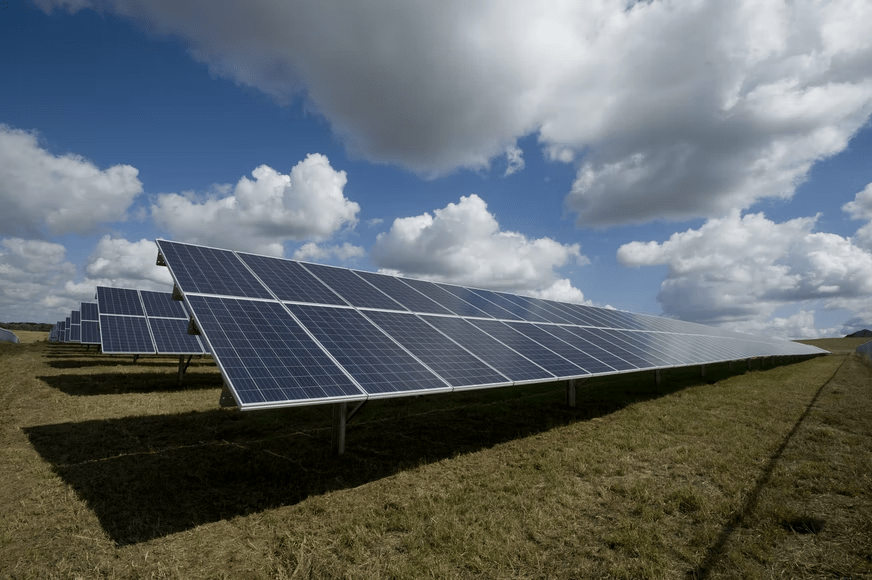You’ve heard of solar power, but you might be wondering whether it’s worth it. Solar panels can charge your electric vehicle and power your home, but they can also cost thousands of dollars to install and use up space in your yard or on your roof. Let’s explore whether solar energy production is right for you!
Solar panels are photovoltaic panels that convert sunlight into electricity.
Solar panels are photovoltaic panels that convert sunlight into electricity. They can be mounted on a roof or on the ground and they can be used to power homes or businesses. When you are not using solar power, it is stored in batteries so that you have electricity at night as well.
You can have solar panels installed to power your home, or you can lease them and use the power they generate to reduce your utility bill.
If you want to install solar panels on your roof, it’s a good idea to check with your utility company first. They may have programs that help homeowners offset the cost of installing solar power systems. Some utilities offer rebates on specific types of equipment or upgrades, while others provide grants for educating consumers about green technologies like solar energy.
If you choose to lease instead of buying your own system, keep in mind that not all leases are created equal: some companies will require an up-front payment (called “capitalized cost”), while others won’t ask for anything until after the lease expires. When comparing offers from different providers, look at how much electricity each one estimates it will produce over time–and ask yourself whether those estimates seem reasonable for where you live? If not (e.g., if the estimate seems low), ask why!
Most homeowners who install solar panels get a 30% federal tax credit and a reduction to their property tax value.
If you install solar panels on your house, you can get a 30% federal tax credit and a reduction to your property tax value. This is because the federal government wants homeowners to go solar so they’ll save money and help reduce carbon emissions.
If you own the home and decide to go with the lease option, then it’s possible for you not only to save money but also make some cash by selling excess power back into the grid or even leasing out part of your roof space for other people who want solar panels installed but don’t have enough space on their own properties (or just don’t want them).
Renewable energy sources like solar power are becoming more popular than fossil fuels in the United States.
Renewable energy sources are becoming more popular than fossil fuels in the United States. Solar power is one of the most popular renewable energy sources, and it has been growing steadily in popularity over the last few decades. Other renewable energy sources include wind and hydro power.
While fossil fuels are still used as a primary source of power generation in many places around the world, they have their drawbacks: they’re expensive to produce, harmful to our environment and contribute significantly to climate change by releasing greenhouse gases into our atmosphere when they’re burned up as fuel (like coal).
There are some drawbacks to solar energy production, including cost and space requirements.
Solar energy is a growing, renewable source of power that’s easy to use in your home. Solar panels are becoming more affordable and efficient, making them an attractive option for homeowners who want to reduce their carbon footprint and save money on electricity bills. But before you invest in solar panels or other forms of alternative energy, be sure to consider the costs involved with installing them as well as any potential drawbacks–including space requirements and weather conditions that may affect your ability to generate enough power from the sun.
Consider whether you want to go solar before making a decision.
Before you make the decision to buy solar panels, there are some things you should consider. The first thing to look at is the cost of solar panels. Solar technology has come a long way in recent years and prices have dropped significantly as well. However, if this is something that interests you but your budget isn’t quite ready for it yet, there are other ways to get started with renewable energy sources like wind turbines or hydroelectric dams.
Next comes space: Are there enough open spaces on your property where installing these panels would work? This can be tricky if it requires leveling land or cutting down trees–but if not using any land means more money saved then by all means go ahead!
The next factor affecting whether or not installing such equipment makes sense for anyone’s situation depends largely upon how much sunlight hits where they live throughout most parts of each day (and year). If enough hours exist between sunrise and sunset every day throughout most seasons then chances are good that installing some sort of solar power generator could provide savings over time even though initial costs may seem high compared against traditional methods like coal burning plants which produce electricity through combustion rather than chemical reactions involving photons from stars millions upon millions miles away from Earth itself.
Conclusion
If you’re looking to save money on your electricity bill and want to do your part in reducing carbon emissions, solar panels are a great option. They can be expensive up front, but there are incentives from both state and federal governments that can help offset some of those costs. However, if your property doesn’t receive enough sunlight or doesn’t have enough roof space for panels then installing them might not make sense for you at all.
